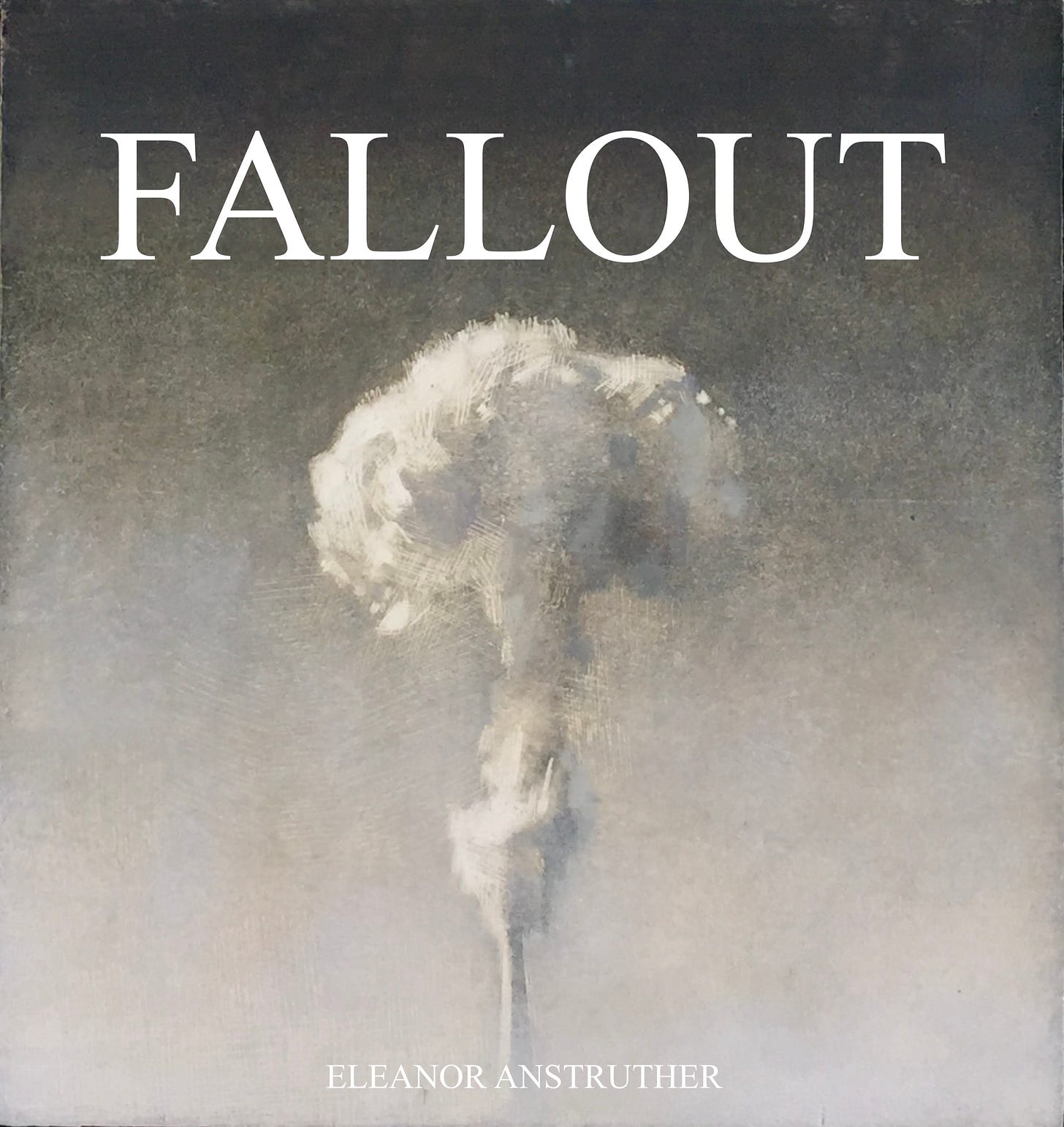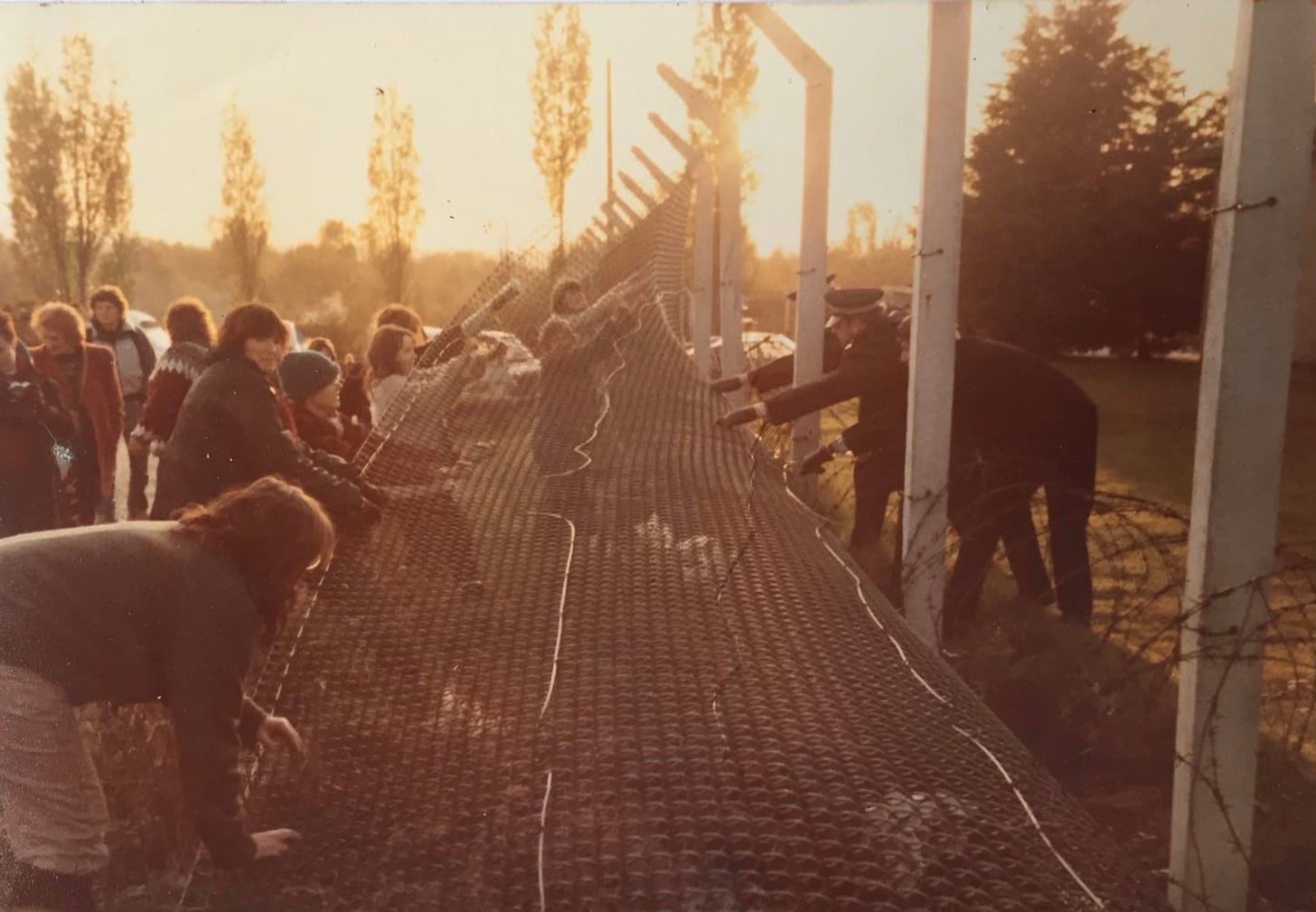Sometime around reaching Blue gate, Kate Hilperton regretted the promise she’d made to her husband.
“Back for supper, I promise,” she’d said as she’d kissed his cheek the night before, a tea towel in his hands, her own covered in suds, they did the washing up together. What other husband did that? She felt lucky to have him. Well, mostly. And keeping their word to each other, A marriage built on trust, is what he’d said when they’d been students, full of hope, was what their relationship was all about. But.
But it was too magnificent. She cared too much. How could she leave when so many were staying, a vigil of torches, a base embraced through the night? She was coming straight back on Monday anyway, as soon as she’d dropped the girls at school. She’d been saving that up to tell him, hadn’t mentioned it as he’d put the plates away one at a time. Ask him. Tell him. The balance of power in Kate’s marriage wasn’t something she liked to dwell on.
The illusion of partnership was where she set out her stall, and if someone had pointed out it was ask, not tell, she would have fought. Simon was the only man on the street who knew how to change a nappy, she was one hundred percent sure of that. So she waved Annabel off in the van heading for Kingston, Annabel looking fraught as the doors slammed on her, and stayed at Greenham with her thirty thousand sisters, and her riotous teenage daughter who didn’t want to go home, either. They’d find Bridget somewhere, she couldn’t have gone far, if she’d camped at Blue gate, they’d collect her in the morning.
From the minibus she grabbed the duffel she’d packed just in case, two sleeping bags, their toothbrushes, a change of underwear, a pot of Nivea for her dry skin. She’d sent Peggy to the clearing to see if anyone had room in their tent. Everyone here was so friendly, so open and giving, it really was the best education a girl could have, a person could have for that matter, male or female, though without men it was better. It was the greatest experience of her life, even better than childbirth and she’d done that five times.
Kate hadn’t started the year as an activist. She’d become one.
When nineteen eighty-one had become nineteen eighty-two she’d been doing exactly what she’d done for the last decade and a half; trying to stay awake for Big Ben, for Simon, for whichever friends they’d cobbled together, and not fall asleep in her chair with one of the little ones on her. Pretending to be cheerful when all she wanted was bed had become her standard. Her new year’s resolution every year was to try and be more fun. Then the Falklands had happened, and Maggie and Ronnie had happened, and the rhetoric coming out of Washington had ramped up anti-Russian fervour to such a degree that if you believed the headlines world war three was the touch of a button away, and Kate and Simon, a growing family and already members of their local CND, had packed the Volvo with donations and all five girls, and driven to Greenham for the first time. For her birthday Simon had given bolt cutters. She’d opened them in front of his mother who’d assumed they were long handled secateurs.
Annabel dispatched, Kate headed for the clearing. She met her daughter coming the other way.
“I found one.” Peggy pointed roughly in the direction of flapping tarpaulin strung between low branches of a tree, lit by the clearing’s campfire. “I’ll see you later.”
Let her go, thought Kate as she instinctively did the opposite, reaching for her daughter’s hand in the dark. Peggy skipped loose and ran for the riot at the fence, already singing her heart out. She’d probably find Bridget before Kate did.
Kate wandered over to the tarpaulin shelter, a shared space, and laid out their sleeping bags as if making the beds at home, carefully, and with love and hoped no one would take them. She’d been the first to volunteer for Greenham at their local CND, Kingston branch, and more than happy to spend their money, Simon’s money really, but spend it anyway, donating to the cause. They, she and Simon, were the lucky ones. She was the lucky one she thought, heading off after her daughter. To have a husband like him. Not everyone could count on a man being so understanding, being so by her side, he’d probably half expect her not to come home tonight.
He’d said, the dish cloth over his shoulder, a clean jay cloth to wipe down the draining board, “I’ll take the girls to my mother’s for lunch then, shall I?”
He knew what Greenham was like. He knew what it did to her.
He’d driven her out there a few times, stayed for the day at Yellow gate where men were allowed until sunset. And he’d put her on the train many more times than that, taken the girls to his mother’s. He knew she came home full of rage, a wild animal stamping dirt into the kitchen floor, her face streaked with woodland, her clothes smelling of campfire, her outraged heart towering with injustice.
“The fact that she’s a woman,” she’d say every time. “A woman.” She couldn’t get over it, that Thatcher would do this. “Men,” and she’d hold up her hand and add, “not you. But men, I get it. They’re idiots. They don’t carry life. They’re consumed with a playground mentality. But a woman, a mother, it’s without conscience, it’s unfathomable,” and she’d stomp off to the bath, with one of the girls trailing after her.
She returned now to the fence and held on to it, subdued, the riot of pulling it over, over for another night. Greenham made her cry. The wire, the tarmac, the watch towers beyond, the silos and squaddies; the symbols of life tied on metal. Did they not see? Could they not feel? She cried every time. Simon had offered to drive the bus and work the creche, the plates put away one by one, the cupboard door closed quietly, but she’d said no. She wanted to be away from the little ones pulling on her. She’d meant to hug him, but Peggy had come in asking which boots she should wear. Peggy was as switched on as Kate wished she’d been at sixteen. Full of fire and not afraid to burn, she was five years older than the twins, seven years older than Joey and ten years older than Amy who’d come along as a mistake when the last thing Kate had needed was a fifth.







“Full of fire and not afraid to burn”. Brilliant.
Ooof. The illusion of partnership. Floors me.
Brilliant as ever, Eleanor.